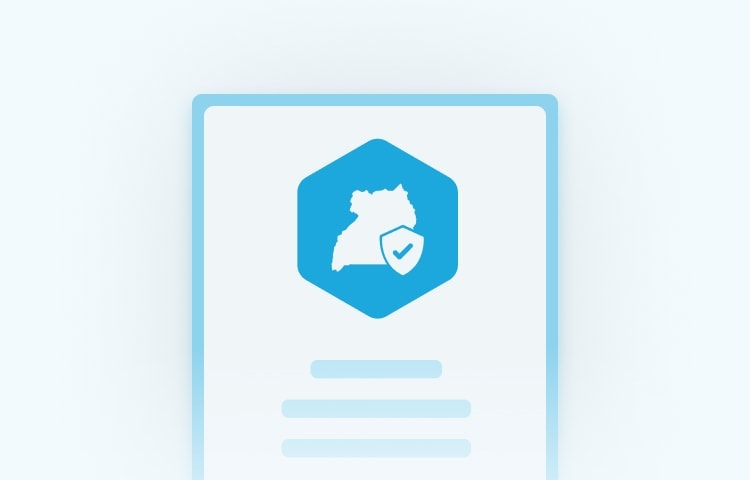Uganda’s Computer Misuse Amendment Act 2022 (Act) came into effect after President Yoweri Kaguta Museveni assented to the law on 14th October 2022.
Objective of the Act
The object of the Act, as specified by the Ugandan government, is to:
- Amend the Computer Misuse Act, 2011, to enhance the provisions on unauthorized access to information or data;
- Prohibit the sharing of any information relating to a child without authorization from a parent or guardian;
- Prohibit the sending or sharing of information that promotes hate speech;
- Provide for the prohibition of sending or sharing false, malicious, and unsolicited information; and
- To restrict persons convicted of any offense under the Computer Misuse Act, 2011 from holding public office for a period of ten years; and for related matters.
Background of the Act
Since the enactment of the Computer Misuse Act, 2001 in Uganda, the world has witnessed ongoing rapid growth in computer-generated technologies. As a result, many internet and social media platforms have been adopted as means of communication and interaction.
While the development of computer-generated technology through the use of the internet has brought a multitude of economic, social, and educational advantages, it has also created opportunities for violating others' rights and freedoms, particularly the right to data privacy.
The right to privacy is safeguarded and preserved by Article 27 (2) of the Constitution of Uganda, 1995 (Constitution), which prohibits, among other things, interference with the privacy of correspondence or communications. The Constitution further protects an individual's right to privacy under Article 41 by outlawing the disclosure of such information that might infringe on another person's right to privacy.
The abuse of social media and online platforms through the dissemination of false, malicious, hateful and unwarranted information has adversely impacted the enjoyment of the right to privacy of individuals. Regrettably, a number of these violations have extended to minors, with information about, or relating to minors being shared on social media sites without the consent of their parents or legal guardians.
In light of the foregoing issues, the Computer Misuse Amendment Bill 2022 was introduced in Uganda to enhance the protection of the right to privacy by addressing the issues arising from the misuse of online and social media platforms.
Main Features of the Act
The Act applies to any person, regardless of their nationality or citizenship, and whether they are within or outside Uganda. If an offense under the Act is committed by any person in any place outside Uganda, they may be dealt with as if the offense was committed within Uganda.
The Act criminalizes the following actions and introduces corresponding penalties:
- Without authorization:
- accessing or intercepting any program or another person's data or information;
- making audio or video recording of another person; or
- sharing any information about or relating to a person.
If a person is found guilty of committing any of the foregoing acts, they are liable to imprisonment for up to 10 years, or a fine for an amount up to 750 currency points (Uganda shillings 15,000,000), or both.
- Using social media to publish, distribute or share information prohibited under the laws of Uganda under a disguised or false identity.If a person is found guilty of committing the foregoing act, they are liable to imprisonment for up to 5 years, or a fine for an amount up to 500 currency points (Uganda shillings 10,000,000), or both.
If such information is published, shared or distributed on a social media account of an organization, the person who manages the social media account of the organization shall be held personally liable for the commission of the offense. Moreover, for the purposes of prosecution of the foregoing act, it shall be presumed, until the contrary is proved, that the information on a social media account which is:
- verified by a social media operator, has been published, distributed or shared by a legal or natural person;
- registered using a telephone contact, is published, distributed or shared by the person or organization in whose name the telephone contact is registered; or
- registered using an email address that has been used or submitted as data by any data collecting entity, is published, distributed or shared by the person or organization in whose name the email address is registered.
- Sending, sharing or transmitting any information about or relating to a child through a computer unless an individual obtains consent of the child's parent, guardian, or any other person having the authority to make decisions on behalf of the child.
- Writing, sending or sharing any information through a computer which is likely to:
- ridicule, degrade or demean another person, group of persons, a tribe, an ethnicity, a religion or gender;
- create divisions among persons, a tribe, an ethnicity, a religion or gender; or
- promote hostility against a person, group of persons, a tribe, an ethnicity, a religion or a gender.
- Sending to or sharing with another person unsolicited information through a computer, unless the sending or sharing of the unsolicited information is in the public interest. Unsolicited information means information transmitted to a person using the internet without the person's consent, but does not include unsolicited commercial communication.
- Sending, sharing or transmitting any misleading or malicious information about or relating to any person through a computer.If a person is found guilty of committing any of the foregoing acts, they are liable to imprisonment for up to 7 years, or a fine for an amount up to 750 currency points (Uganda shillings 15,000,000), or both.
How Securiti Can Help
Securiti’s robust tools enables businesses to ensure compliance with their privacy obligations under the Uganda Computer Misuse Amendment Act, 2022.
Securiti is an industry leader in offering business solutions for data compliance and governance. Its wide range of options, from consent management to data discovery, enables businesses to automate their compliance with all significant international data regulations.
Request a demo today and learn more about how Securiti can help your compliance efforts with the Uganda Computer Misuse Amendment Act as well as any other data-related regulations.











































